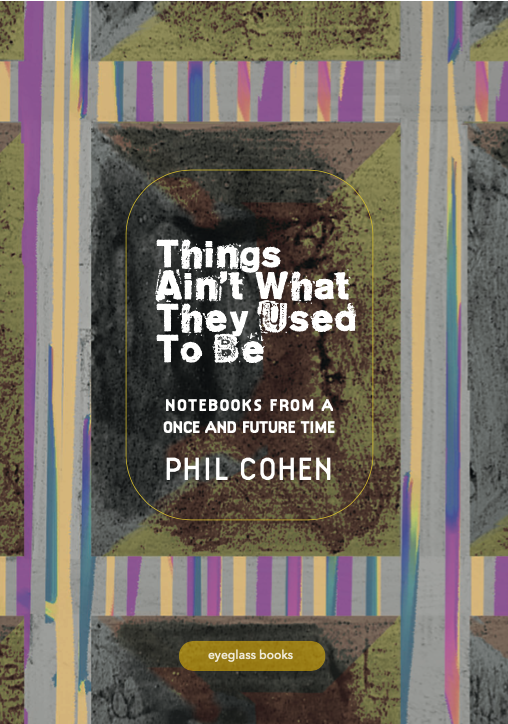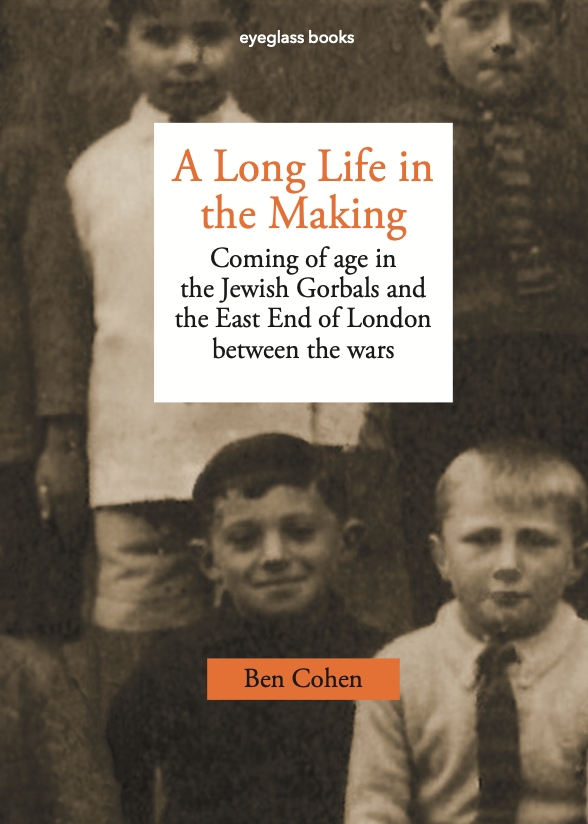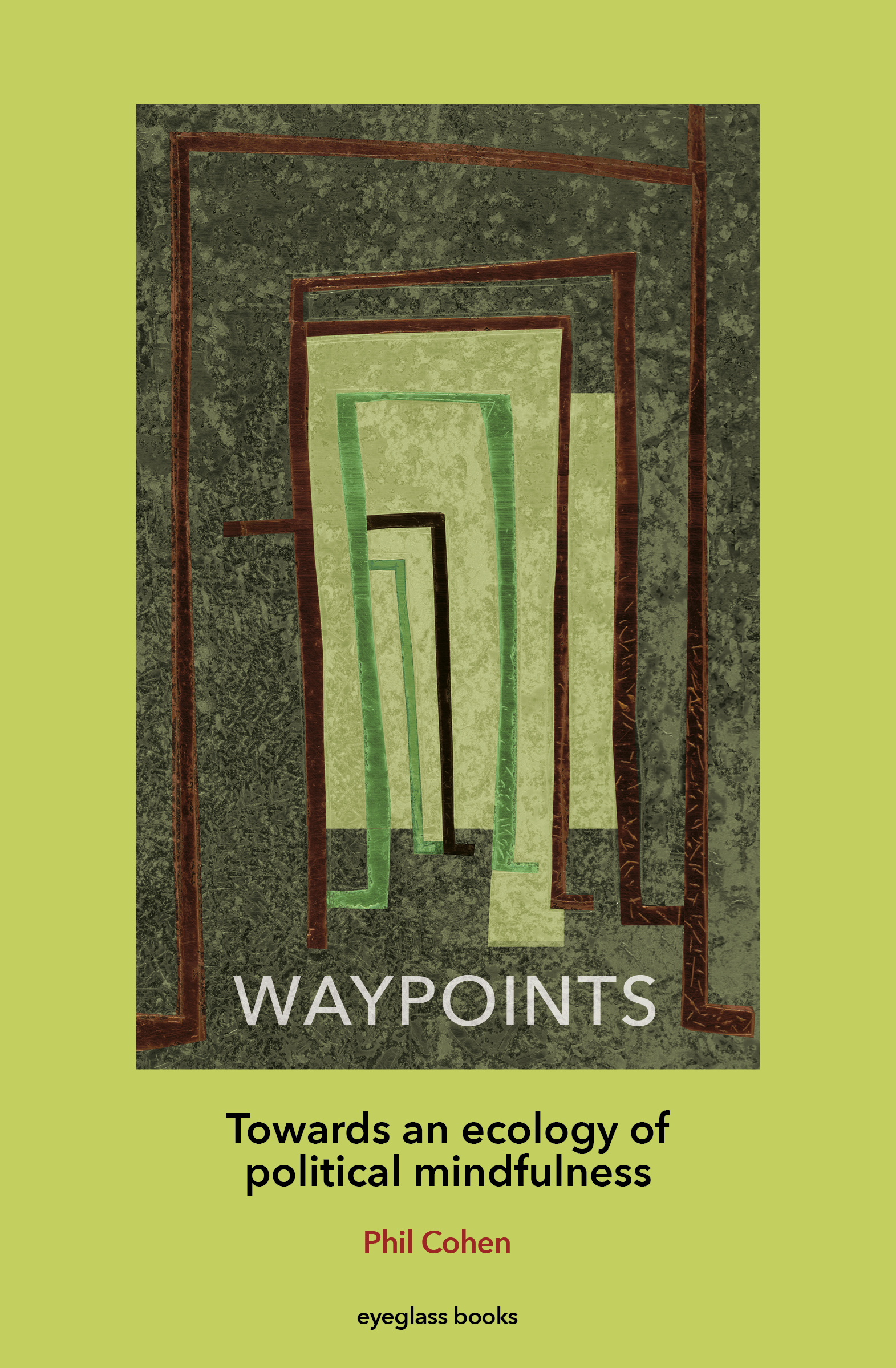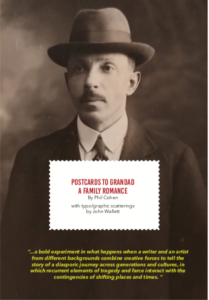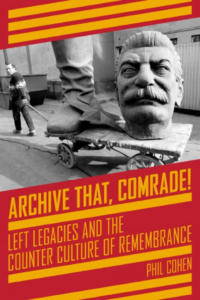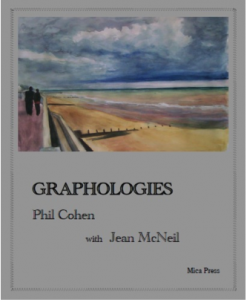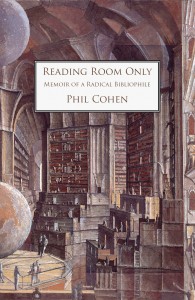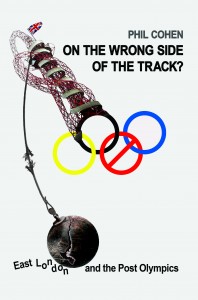Looking back on the first ten years of Livingmaps Network
Every project has its founding myth , a story about its origins in which the cold rational prose of ‘aims and objectives’ melts into the thicker air of an auto-poetics. The risk is that in the process starting points become end points, and the capacity for improvisation gives way to the observation of teleologies . How many organisations have foundered because their journeys are governed by inflexible ‘road maps’ laid down by their founders?. If Living maps is to live up to its name , it is important that it should retain the ability to surprise itself as the very principle of its growth.
In 2013 I had just completed a book about the impact of the 2012 Olympics on the cultures and communities of East London and wanted to include a map which illustrated the area’s complicated social and industrial history, as well as its current transformation[i]. I visited an exhibition which featured a linear map representing local children’s perspectives on the Mile End Road, and designed for use on local buses. This was the kind of map I was looking for- imaginative, grounded in locally situated knowledge, and visually exciting. I met the map’s author , John Wallet, and not only commissioned a map for my book but discovered a kindred spirit as regards the potential of cartography for putting otherwise ignored or marginalised territories of meaning on the map. I had already developed participatory mapping as part of my ethnographer’s toolkit, in the research I was doing with young people in East London around issues of race and class . Now John and I decided to organise a programme of seminars and lectures exploring a range of issues- conceptual, political and aesthetic – which interested us about map making, as a way of educating ourselves about the debates going on in the field of critical cartography.
In formulating this initial programme we received much good advice and support from Muki Hacklay, director of Mapping for Change and a pioneer of citizen science,; David Pinder , a cultural geographer at Queen Mary College; Adrian Chappell, an arts educationalist; Jeremy Crump , then a policy analyst at the Young Foundation; Loraine Leeson from Arts for Change and Clare Melhuiish from the Urban Lab at UCL. Tom Harper, head curator of the British Library’s map collection was also an early adopter of this project and has continued to be a valuable source of wise counsel. Following their advice we decided to form a not- for- profit company and to remain independent of any institutional affiliation.
Looking back recently at these early programmes I was struck by the sheer range of topics covered and just how multi-disciplinary our speakers were : not only geographers but historians, artists. poets, demographers , community activists and even one of two professional cartographers. Many of the attendees were post- graduate students researching cartographic topics but finding that there was no-one in their departments who had much interest or knowledge in the subject. Cartography was and still is a cuckoo in the nest of arts, humanities and social sciences and building a community of critical practice in this field outside the Academy has been an important part of the remit.
As part of this we established an annual memorial lecture in honour of Wliiam Bunge, whose expeditionary geography and use of maps was one of our founding inspirations. Interestingly while all of the speakers so far ( which have included James Cheshire, Iain Sinclair, and Ken Worpole amongst other luminaries ) have noted Bunge’s influence as a geographer, but not been so aware of his unique blend of what we might call ethno-cartography – the study of how the different cultures of mapping influence the mapping of cultures.
The move from theoretical debates to counter mapping practice was helped by our association with the Walking Artists Network, with the co-ordinators , Blake Morris and Clare Qualman, playing a key role , not least in introducing a number of mapping artists, including Jina Lee, Debbie Kent and Kimbal Bumstead into the network. This made possible two major developments : the establishment of an online bi-annual journal , and the development and delivery of arts based participatory mapping projects.
Since its inception Living Maps Review has gone from strength to strength , initially with Jeremy Crump at the helm and then under the editorship of Mike Duggan, to the point where it can now justifiably claim to be the go-to journal for counter-mapping theory and practice, with an international readership and encouraging a broad range of contributions. It is deliberately not peer reviewed but still attracts scholarly articles as well as reports of work in progress, audio-visual material, interviews and book reviews- and of course it includes the texts of many of the contributions to our lecture and seminar series. A collection of some of the best of this material was put together and published in 2022.[ii]
Community based mapping projects have included work with young people and other residents in East Village in Stratford featuring a Young Person’s Map and Guide to a re-imagined Olympic Park; this was followed by ‘Groundbreakers’ a multimedia map and guide to the back story of the site from the Bronze Age to the Digital Age, a project led by Toby Butler . More recently a series of projects working with groups of children and young people, including those with learning difficulties has laid the foundations for building a Young Citizens Atlas of Environmental and Social change as a major national on line resource.
Many of these activities have been based in and around London but like many similar organisations, the pandemic and lock down meant a move on line; this had the effect of greatly increasing both the number and geographical spread of our audience. At the height of lockdown It was not unusual to have an audience of 150 plus, drawn from both Global North and South, for our online events. .At the same the smorgasbord approach to programming was dropped in favour of a much more focussed political and conceptual agenda ; for example a series of events explored issues raised by mapping the environmental crisis from a non- Eurocentric perspective. Thanks to Bob Gilbert , Barbara Brayshay and thanks to . Another, more recent, series was organised in in response to Russia’s invasion of Ukraine, and in partnership with Pushkin House, examined the tortuous relationship between map making and war making in the 20th and 21 century. At the same time the need to provide a broad and inclusive platform for a variety of mapping practices led to the creation of a counter mapping festival by Barbara Brayshay and supported by Jacob Wallett as the indispensable media manager, in which live events, including walks, are combined with online presentations and debates.
For any shoe string operation like Living maps these past ten years have been an exhilarating and at times a bumpy ride, but then so have the times themselves ! There are many issues in this field which need to be urgently addressed : the emergence of post representational and post humanist perspectives in critical cartography ; the impact of AI technology on big data mapping; the continuing need to bridge the divide between the two cultures of cartography, one small scale, arts and ethnography based , emphasising the importance of locally situated knowledge and the other science and technology based and committed to ever greater precision in the visual imaging of statistical trends and the spatial distribution of social metrics.
Clearly we can look forward to continuing to be surprised by new developments as members of Living maps Network get to grips with these challenges, in the process giving up large amounts of what little spare time they have, to meet, discuss, argue and plan activities. Is all this done out of a shared sense of personal and professional commitment ? And to ensure that map making is not just a privileged informatics of rational governance but can be a poetry made by all, especially those whose voices are rarely heard? Yes, surely that. But perhaps also for the fun and pleasure to be had in being part of a community of practice, listening and learning from one other as new ideas and practices emerge that none could individually have dreamt up . That is what I will miss most.
[i] See Phil Cohen On the Wrong Side of the Tracks : East London and the Post Olympics Lawrence and Wishart 2013
[ii] Phil Cohen and Mike Duggan (eds) New Directions in Radical Cartography Rowman and Littlefield 2022 Paperback edition 2023
